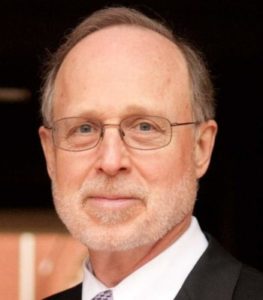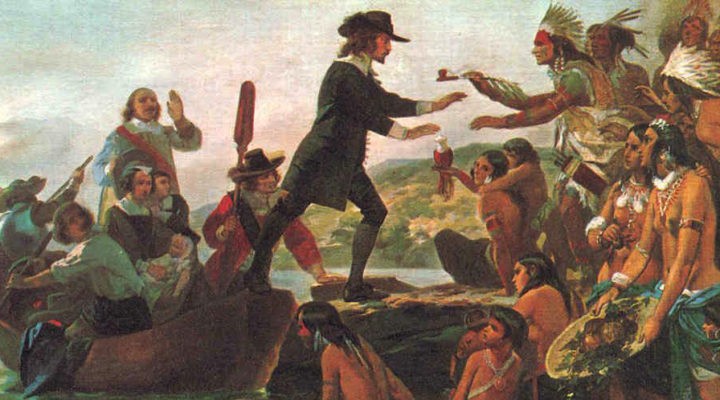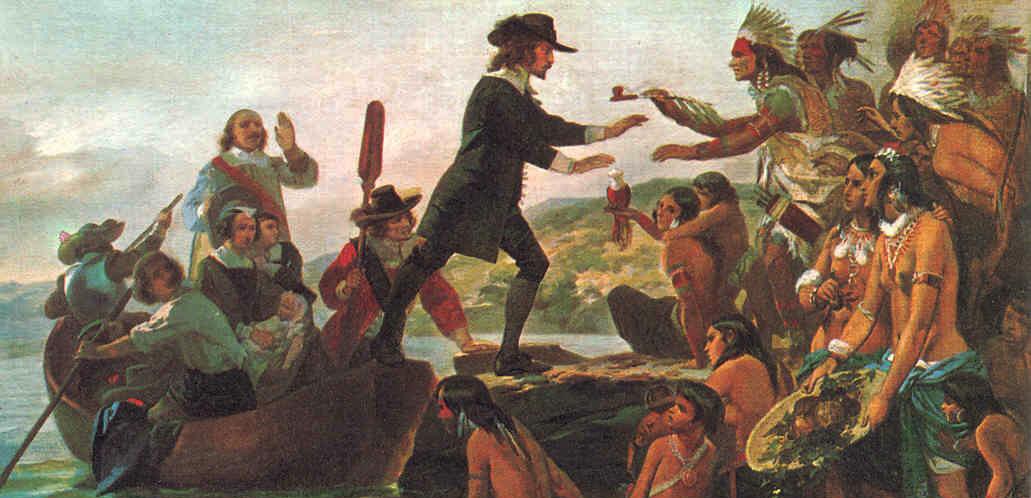If Roger Williams is remembered at all, it’s as a champion of church-state separation.
In addition, a steadily declining circle of progressive Baptists honor the founder of Rhode Island as the original American Baptist.
Both perceptions are a bit off-target.
Williams did call for a separation of church and state, but only as part of a much bolder project.

Alan Bean
Williams did help establish the first Baptist church in America in 1638, but he quickly declared himself a “seeker” and never again affiliated with a Christian congregation of any description.
Christian or heretic?
Many of Williams’ outspoken detractors regarded him as a dangerous heretic, not a proper Christian at all. Much depends on how we define the word “Christian.”
Williams never strayed too far from the orbit of Reformed orthodoxy. Like almost all 17th-century Europeans, he received the Bible as the fully authoritative revelation of Almighty God. And, to borrow a phrase from Paul Tillich, the God revealed in holy Scripture was always Williams’ ultimate concern.
But if by “Christian” we mean a person who lives in close association with other Christ-followers, a person shaped by the worship of the church, the mature Williams doesn’t pass muster.
In Williams’ view, the faith once delivered unto the saints was a pristine garden of delights. The world, left to itself, was a vicious jungle in which the strong devoured the weak. If you mixed religion and politics, you got the kind of politics that, in the 17th century, required the repression, persecution, torture and execution of one’s opponents.
“If you mixed religion and politics, you got the kind of politics that, in the 17th century, required the repression, persecution, torture and execution of one’s opponents.”
This is why King Charles I was determined to create an England where those aspiring to positions of authority would bend the knee to the 39 articles of the Church of England and “the divine right of kings.”
The Puritans who controlled Parliament in the early decades of the century believed everyone, the king included, must conform to their religious vision. When they couldn’t make that happen in England, they shifted their ambitions to the Massachusetts Bay Colony.
With the exception of a few Anabaptists, European Christians were eager to enforce their own brand of religion on everyone else, typically by force of arms. Wars of religion were ubiquitous and never ending.
Coming to America
Charming, charismatic, brilliant and persuasive, Roger Williams made a striking impression even on his enemies. But the man was incorrigible, refusing to bend to any form of religious authority. Rejecting the foundational ideas on which his society was fashioned as pragmatic fictions devoid of ultimate authority, Williams was the father of American deconstruction.
Williams came to New England determined to convert the “Indians” to Christianity. But after spending several years trading with Native Americans, learning their languages and absorbing their unique culture, his evangelistic zeal quickly ebbed. Unlike the fractious English, the Native people he traded with had evolved pragmatic traditions that, most of the time, made room for peaceful coexistence. To Williams, the common assumption that Native American lands should be forfeited to the English crown was a cruel absurdity.
“A doer as much as a thinker, he envisioned a world in which men and women could disagree without persecuting and killing one another.”
It has been argued that Williams was more concerned with building a civil society than with recovering the lost purity of the Christian church. Williams wouldn’t have understood the distinction. A doer as much as a thinker, he envisioned a world in which men and women could disagree without persecuting and killing one another. He wanted the world to work.
To us, his ideas don’t seem all that radical. Power should flow from the governed to the government. Faith should never be coerced. Protestants, Catholics, Quakers, Jews, Muslims and even atheists can live together in peace. The community must make adequate provision for the poor.
But to make these principles work, Williams was forced to deconstruct the common-sense assumptions of his day. In 1643, when his opponents in Massachusetts Bay were poised to annex his Providence Plantation, Williams set sail for London.
Back in England
Williams spent the arduous two-month Atlantic crossing committing everything he knew about the language and customs of the Narragansett to paper. The resulting book, A Key Into the Language of America, was published to great acclaim upon his arrival in England.
But Williams wasn’t primarily interested in satisfying European curiosity about American Indians; he was seeking a charter that would protect his Providence Plantation from being absorbed into Massachusetts Bay. In normal times, he would have appealed to the king, but these were not normal times. England was a year into a civil war between a Puritan-dominated Parliament and Charles I. Williams unleashed a year-long charm offensive designed to secure parliamentary approval for a democratic society in which an impregnable wall protected church life from political interference, and vice versa.
In these revolutionary times, Williams’ ideas slowly gained traction. His old friend Oliver Cromwell intended to introduce a Protestants-only form of religious toleration if God gave him victory over the royalist forces. John Milton, then known as a tract-writing Puritan propagandist, was fascinated by Williams’ ideas. Many concluded that, while England was certainly not ready for such radical experimentation, it would be interesting to see if Williams could pull it off.
While in England, Williams sweated over the manuscript of his manifesto, The Bloudy Tenent of Persecution for Cause of Conscience. His rambling and prolix manuscript wasn’t published until Williams had boarded ship for New England, his precious charter safely in hand.
“The Bloudy Tenent created such a scandal in England that Parliament passed legislation calling for its public burning.”
The Bloudy Tenent created such a scandal in England that Parliament passed legislation calling for its public burning. Williams wasn’t just trying to rearrange the tables and chairs of Christendom; he wanted to burn the entire edifice to the ground so he could erect something new in its place.
Spiritual reality
The fact that Roger Williams (like Cromwell and Milton) ended his life outside the embrace of Christian institutional life highlights the most challenging aspect of his program of radical deconstruction. Where does it stop?
Williams’ religious life was complicated by his harsh understanding of spiritual reality. The original purity of the church had been damaged beyond repair. The fall of God’s ecclesiastical Humpty Dumpty had been so devastating that no one, Williams included, could put the pieces together again. Only God possessed the authority to redeem the church of Jesus Christ.
Williams was suspicious of the kind of experiential, charismatic religion that motivated people as diverse as Anne Hutchinson (who believed God had granted her spiritual insight), Oliver Cromwell (who believed God had called him to overthrow a corrupt monarch) and George Fox (who based his religion on the promptings of an “inner light”). When God was ready to speak, Williams declared, the message would be available to all.
“In a situation defined by a broken church and a silent God, religious leaders, whether traditional or revolutionary, were talking through their hats.”
In a situation defined by a broken church and a silent God, religious leaders, whether traditional or revolutionary, were talking through their hats. At least that’s the way Williams saw things.
Chaotic times again
Like Roger Williams, we live in chaotic times. The foundations are crumbling, and the center will not hold. Christianity remains the dominant religious expression in America, but the cracks in the façade are visible and growing.
Some Christian deconstructionists are simply exchanging one expression of Christian faith for another. They move from the Protestant fold to the Catholic; from the evangelical to the Anglican; from the Presbyterian to the charismatic; from fundamentalism to progressive Christianity. Where Roger Williams failed, they have succeeded.
But many experiments in religious deconstruction defy resolution. There is no end to the process. Patriarchy, colonialism, white supremacy, heteronormative assumptions, fundamentalist theology and capitalist economics are rejected as failed and mutually supportive systems designed to gain, maintain and wield power. The deconstructionists have peered behind the curtain, and there’s no one there but a cringing covey of old white men.
Like Roger Williams, many of the young people walking away from the American church view traditional Christianity as an impediment to social survival. Can’t we just get along? No, comes the answer, not if this crew remains in charge! So, let’s burn it down and start from scratch.
Unlike Williams, these exiles from the Christian fold aren’t waiting on Almighty God to set things straight. Isn’t God just another construction?
Ready or not, we face a full-blown crisis of authority. Welcome to Roger William’ world.
Alan Bean is executive director of Friends of Justice, an alliance of community members that advocates for criminal justice reform. He lives in Arlington, Texas.
Related articles:
Roger Williams, John Cotton and the future of the American experiment | Analysis by Alan Bean
The deconstruction of American evangelicalism | Opinion by David Gushee
‘Deconstruction’ is not a dirty word | Opinion by Andrea Huffman


